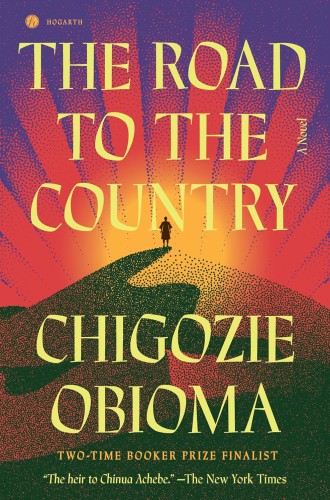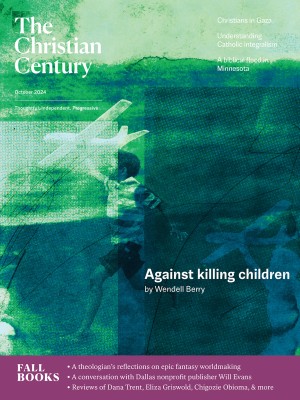Finding ourselves in a Nigerian war novel
Chigozie Obioma offers a narrative that transcends bullets and politics.

The Road to the Country
Chigozie Obioma loves to destabilize the way his readers experience the novel as a genre. The Nigerian writer is arguably most daring on this front in his latest novel, in which he delves farther back in time than in The Fishermen (2015) and An Orchestra of Minorities (2019). The Road to the Country is set in Nigeria in the 1960s, the era of the Biafran War, but it is not simply a historical war novel. Though it contains conventions of the genre—characters full of masculine bravado, long passages illustrating the devastation of post-traumatic stress disorder—Obioma draws as well from magic realist impulses, creating a story of togetherness amid the hypothetical.
The Biafran War (1967–1970) was Nigeria’s big “what if?” civil war, in which the oil-rich Biafra region broke from the greater Nigerian nation in response to repeated oppression of the Igbo people, Obioma’s own ethnic group. It is a war that figures heavily in Igbo identity—with echoes in the writing of Chinua Achebe and Chimamanda Ngozi Adichie, among many others—and a source of both pride and sorrow.
Read our latest issue or browse back issues.
In The Road to the Country, the main character, Kunle, journeys into Biafra at the start of the war in order to find and bring back his younger brother, Tunde. Added to the wartime urgency is a story of trauma told at the beginning of the novel: Kunle feels responsible for an accident when they were younger that left Tunde wheelchair bound. “The days acquired a palpable darkness” for Kunle after the accident, says the narrator, “and together they became the night of his life.” And thus, with a combination of guilt, grief, and brotherly love, an incredible engine of a plot is born.
What Kunle discovers as he is tossed into a larger conflict is the power of brothers (and sisters) in the face of danger and oppression. He muses: “In war, every soldier comes to understand that faced with the possibility of cruel and sudden death, what they fear most is being alone.” The brotherhood of war friends that emerges includes a poetry-spouting soldier named Felix and a pious, reserved comrade nicknamed Fada, and this varied fellowship ushers a half-hearted and awkward Kunle into the maturing environs of war. Ultimately, the novel expands beyond Kunle’s ill-planned search and rescue mission to a broader meditation on war and friendship, loss and lament for a country that would never be.
To fans of Obioma’s first two novels, both long-listed for the Booker Prize, some features of The Road to the Country will seem familiar. Among these is a framing device that recalls Orchestra: a seer named Igbala becomes prophetically invested in Kunle’s life, seeing it play out in a storytelling frame that starts awkwardly but gains momentum throughout the novel. Additionally, Kunle’s romance with a fellow soldier is intriguing in its exploration of how love can help wounded people live through grief, but the relationship is disrupted enough at several points in the novel to leave readers wondering what might have been. A similarly tragic and frustrated love story lies at the heart of Orchestra.
This new novel’s strength is Obioma’s willingness to take the war novel to unexpected places, offering a narrative that transcends bullets and politics to ask us about our own narratives: What are the stories we tell about death? And why are we so eager to wedge ourselves against each other, focusing on the stories of borders, ethnicity, and geopolitics that perpetuate division? It occurs to Kunle at one point that “the only true thing about mankind can be found in the stories it tells, and some of the truest of these stories cannot be told by the living. Only the dead can tell them.” (Obioma notes in his acknowledgments that these words are a translation of an Igbo proverb he learned from his mother.) There is much wisdom in this novel.
You’ll find elements of classic war stories like The Things They Carried and The Red Badge of Courage here, and thanks to Obioma’s exquisite research you’ll learn much about the Biafran War and Europeans’ fetishization of it. But your expectations are likely to be quickly expanded as Obioma’s narrative becomes infused with the spiritual tendencies of his Igbo heritage, conveying an imagination that spans time and materiality in a way that only the greats—writers like Gabriel García Márquez, Jorge Luis Borges, and Ursula K. Le Guin—can accomplish. We need novelists like Obioma to remind us that the barriers between the physical and metaphysical are not as rigid as we may think—and that our narratives of pain and loss are not the final story.





